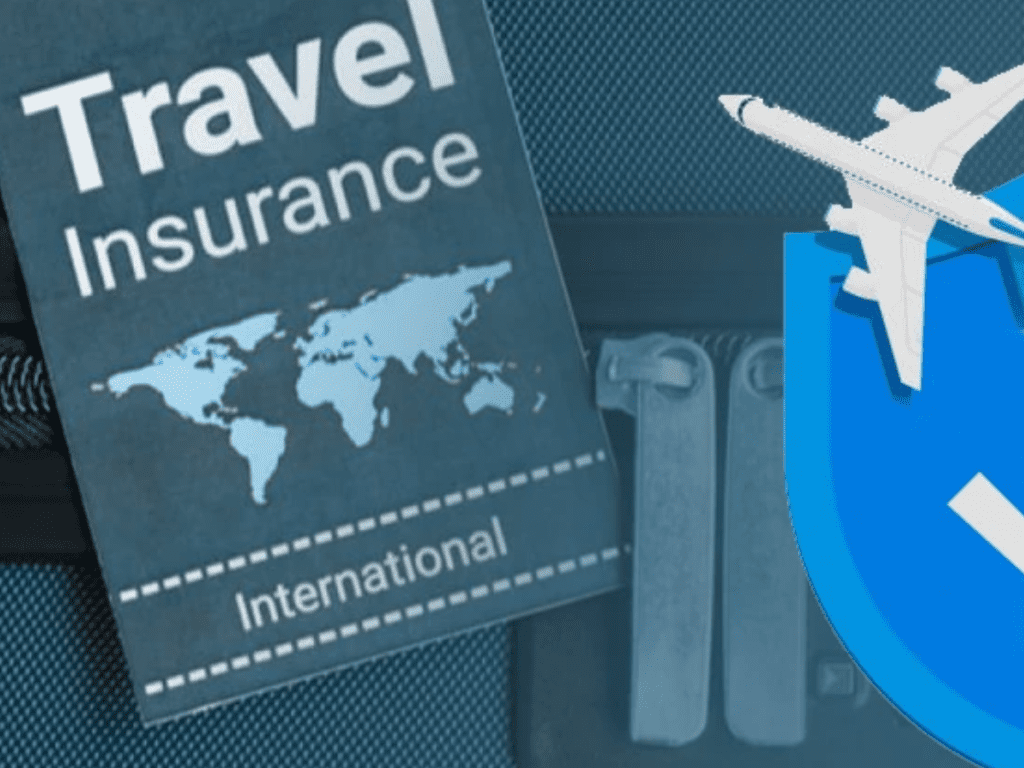Introduction
Traveling can be one of the most exciting and enriching experiences, but it also comes with its fair share of risks. Whether you’re exploring a new country, indulging in adventure activities, or simply taking a relaxing vacation, emergencies can arise unexpectedly. From medical emergencies and flight cancellations to natural disasters and lost luggage, these situations can quickly turn a dream holiday into a nightmare. This is where travel insurance becomes invaluable.
Travel insurance offers protection and peace of mind in situations where things go wrong, helping you mitigate the financial burden and stress. In this article, we’ll explore the importance of travel insurance, the different types of coverage it offers, and how to navigate an emergency while traveling. Understanding why travel insurance is essential can make all the difference in ensuring that your trip remains an enjoyable and worry-free experience.
What Is Travel Insurance?
Travel insurance is a type of insurance that covers financial losses and provides support in various emergencies that can occur during your trip. While it’s not mandatory to purchase travel insurance, it’s highly recommended, especially for international travel or trips that involve significant investments of time or money.
There are many different types of travel insurance, each offering various levels of coverage depending on your needs. Some common coverage types include trip cancellation, medical emergencies, lost or delayed luggage, trip interruption, and emergency evacuation.
Why Do You Need Travel Insurance?
The benefits of travel insurance are numerous, offering protection in several areas that could otherwise lead to significant financial and emotional stress. Here are some key reasons why you should consider purchasing travel insurance for your next trip.
1. Medical Emergencies and Health Coverage Abroad
One of the most significant reasons to get travel insurance is to cover medical emergencies while traveling. Healthcare systems vary dramatically from country to country, and in some places, medical treatment can be extremely costly. If you fall ill or get injured while traveling, medical expenses can add up quickly. Travel insurance can cover doctor visits, hospital stays, surgeries, prescription medications, and even emergency medical evacuations if necessary.
In addition to covering the cost of treatment, travel insurance can also provide assistance in navigating local healthcare systems, ensuring you get the care you need. Without travel insurance, you may be forced to pay out-of-pocket for treatment, which can be financially devastating, especially in foreign countries where you may not have access to affordable healthcare options.
2. Trip Cancellation and Interruption
Sometimes, unforeseen circumstances force you to cancel or interrupt your trip, leading to financial losses. Whether it’s a sudden illness, a family emergency, or a natural disaster, trip cancellation insurance can reimburse you for non-refundable travel costs like flight tickets, hotel reservations, and tours. Similarly, trip interruption coverage offers reimbursement if you need to cut your trip short for an emergency.
For example, if you have to cancel your trip due to illness or a family member’s death, trip cancellation insurance can help recoup your costs. If an emergency occurs while you are already on your trip and you have to cut it short, trip interruption coverage can reimburse the remaining portion of your expenses, such as unused accommodation or non-refundable activities.
3. Lost, Stolen, or Delayed Luggage
Losing your luggage can be an incredibly frustrating experience. If your bags are lost or delayed, it can disrupt your entire travel itinerary. While airlines and transport companies often provide some compensation for delayed luggage, it may not be enough to cover the full cost of replacing your belongings. Travel insurance can help by providing reimbursement for lost, stolen, or delayed luggage, including the cost of purchasing essential items like clothing and toiletries until your bags arrive.
In the case of stolen luggage or personal belongings, travel insurance can also cover the cost of replacing items such as electronics, jewelry, and passports. This ensures that even if your belongings are lost or stolen, you won’t have to bear the financial burden of replacing them.
4. Emergency Evacuation
In some emergencies, especially if you are traveling to remote or high-risk destinations, you may need to be evacuated. Emergency evacuation coverage ensures that you can be safely transported to a nearby medical facility or back home in the event of a serious illness, injury, or natural disaster. This coverage is particularly useful for travelers engaging in adventure activities, visiting dangerous locations, or traveling to places with limited medical infrastructure.
For instance, if you’re traveling to a remote area for a hiking expedition and you suffer an injury, evacuation insurance can help cover the costs of airlifting you to a hospital with the necessary medical facilities.
5. Natural Disasters and Travel Delays
Natural disasters such as earthquakes, hurricanes, floods, and severe weather conditions can disrupt travel plans. If a disaster occurs at your destination, travel insurance can offer compensation for any additional expenses incurred due to flight cancellations, extended hotel stays, or alternative transportation arrangements.
Moreover, if your flight is delayed or canceled due to weather or other issues, travel insurance can cover the costs of meals, accommodation, and transportation while you wait for a new flight. Without insurance, these additional costs can quickly accumulate, especially if your delay extends over several days.
6. Legal Assistance and Liability Coverage
Legal issues can arise during travel, whether it’s an accident, a dispute with a service provider, or a misunderstanding with local authorities. Travel insurance can offer legal assistance, helping you navigate any legal issues that may arise abroad. It can also provide liability coverage if you cause damage to property or injure someone while traveling.
For example, if you accidentally damage a hotel room or cause an injury to another person while on a trip, travel insurance can help cover the costs of repairs, legal fees, or medical expenses for the injured party. Legal costs abroad can be very expensive, and having insurance can provide vital support in such situations.
7. 24/7 Assistance Services
Many travel insurance policies come with 24/7 emergency assistance services, which provide support in a wide range of situations. Whether you need help finding medical care, arranging emergency evacuation, or replacing lost passports, these services are available around the clock. Having access to these services can make it easier to handle stressful situations while traveling.
In some cases, insurance providers also offer concierge services to help with booking flights, accommodations, or tours, making your trip even more convenient and stress-free.
What Does Travel Insurance Typically Cover?
While the exact coverage may vary by policy, the following are some common areas that most travel insurance plans cover:
- Trip cancellation: Reimbursement for non-refundable travel expenses if your trip is canceled for a covered reason.
- Trip interruption: Reimbursement for the cost of returning home early or cutting a trip short due to an emergency.
- Emergency medical treatment: Coverage for medical expenses incurred during your trip due to illness or injury.
- Emergency evacuation: Coverage for evacuation to a medical facility or back home in the event of a medical emergency.
- Lost, stolen, or delayed baggage: Compensation for lost, stolen, or delayed luggage and personal belongings.
- Travel delay: Reimbursement for additional expenses incurred due to flight delays, including accommodation and meals.
- Accidental death and dismemberment: Coverage in the event of death or serious injury while traveling.
How to Choose the Right Travel Insurance Policy
When selecting a travel insurance policy, it’s important to consider your specific needs and the nature of your trip. Here are a few factors to keep in mind:
- Destination: Some destinations may have higher risks for medical emergencies or natural disasters, so make sure your policy offers adequate coverage for your specific destination.
- Activities: If you plan to engage in high-risk activities such as skiing, scuba diving, or hiking, make sure your policy includes coverage for these activities.
- Duration of Trip: Longer trips may require more comprehensive coverage, especially for medical expenses or trip interruption.
- Pre-existing Conditions: If you have pre-existing health conditions, ensure that your insurance provider covers these conditions or offers a rider for additional protection.
What to Do in an Emergency While Traveling
In the event of an emergency during your trip, it’s essential to stay calm and follow the steps below to ensure your safety and minimize any potential complications.
- Contact Your Travel Insurance Provider: Call your insurance provider’s emergency assistance number as soon as possible. They will guide you through the process and help you with necessary arrangements, such as finding a hospital or arranging for evacuation if needed.
- Keep Important Information Accessible: Ensure you have your insurance policy details, emergency contacts, and any necessary medical information easily accessible. This will make it easier to get help when you need it.
- Follow Local Authorities’ Instructions: If you’re dealing with a natural disaster, political unrest, or other emergency situations, always follow the guidance of local authorities and evacuate if necessary.
- Document the Situation: Take photos and make a record of any damage, injuries, or lost property. This documentation will be important when making a claim with your travel insurance provider.
- Stay in Contact with Family or Friends: Keep loved ones informed about your situation and your whereabouts. This will help ensure your safety and provide peace of mind to those at home.
Conclusion
Travel insurance is an essential investment for any trip, offering protection and peace of mind in the face of unexpected emergencies. From medical emergencies and lost luggage to trip cancellations and natural disasters, having the right coverage ensures that you won’t have to bear the financial and emotional burden alone. By carefully selecting a travel insurance policy that suits your needs, you can enjoy your travels with the confidence that you are covered, no matter what happens. So, the next time you book a trip, don’t forget to protect yourself with travel insurance—it’s an important step to ensure that your adventure remains safe and enjoyable.

